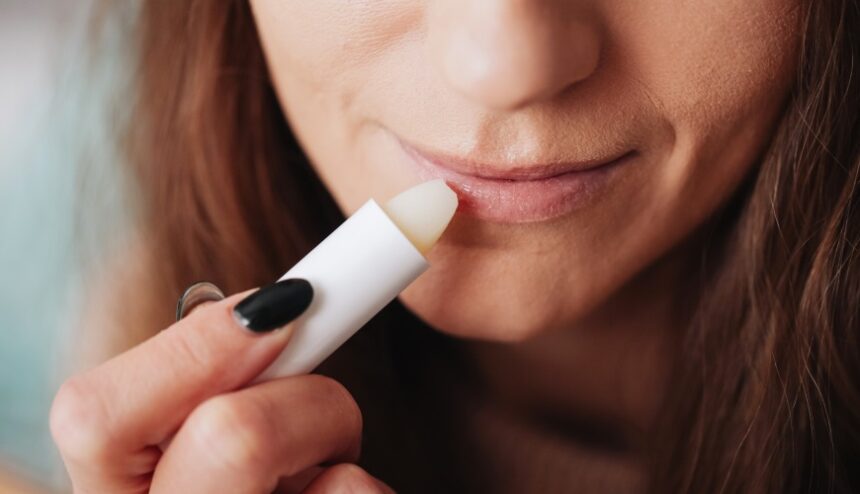 By Katelyn Krueger, PA-C, Derm CAQ, Dermatology
By Katelyn Krueger, PA-C, Derm CAQ, Dermatology
Dry, cracked lips can sneak up on you—whether it’s the chilly, dry air of winter, the harsh summer sun, or seemingly no reason at all. Let’s explore what leads to chapped lips, the best ways to care for them, and my top lip balm picks to heal and keep them smooth and hydrated.
What Causes Chapped Lips?
Environmental factors like dry air, sun exposure, or even dehydration are common culprits behind chapped lips. Certain habits, like frequently licking your lips, can worsen the problem. In some cases, persistently dry or cracked lips may point to something more, such as an allergic reaction or a skin condition.
Best Lip Balm (aka “chapstick”) for Dry Lips
Using the right lip balm can make all the difference. According to dermatologists, certain ingredients are especially effective for treating dry, irritated, or cracked lips.
Look for These Ingredients:
- Castor seed oil: Hydrates and locks in moisture.
- Ceramides: Help repair the skin barrier.
- Dimethicone: Creates a protective seal.
- Hemp seed oil: Offers soothing properties.
- Petrolatum and white petroleum jelly: Time-tested solutions for sealing in moisture.
- Shea butter: Nourishes and softens lips.
When selecting a balm, opt for hypoallergenic products without scents or flavors to reduce the risk of irritation.
My favorite recommendations are Aquaphor for a daily hydrating lip balm and Dr. Dan’s Cortibalm for intensive repair.
Ingredients to Avoid:
Some ingredients can irritate already sensitive lips, causing tingling or burning sensations. Steer clear of these:
- Camphor
- Eucalyptus
- Lanolin
- Menthol
- Salicylic acid
- Fragrances or flavors
- Oxybenzone and octinoxate (commonly found in sunscreens).
If your lips sting when you apply a product, it’s a sign that your skin may be reacting negatively.
When to See a Doctor
If your chapped lips don’t improve despite using a high-quality balm or if you notice persistent cracking, bleeding, or unusual discoloration, consult a healthcare professional. These could be signs of an allergic reaction, an infection, or a more serious skin condition.
Simple Tips to Prevent Chapped Lips
- Stay hydrated by drinking plenty of water.
- Protect your lips from the elements with a scarf in winter or a lip balm with SPF in the summer.
- Avoid licking your lips, as this can worsen dryness.
- Apply a gentle, nourishing balm regularly.
Chapped lips are usually easy to treat with a little care and the right products. If you’re unsure about what’s causing the issue, don’t hesitate to reach out to a dermatologist or your healthcare provider for guidance.

